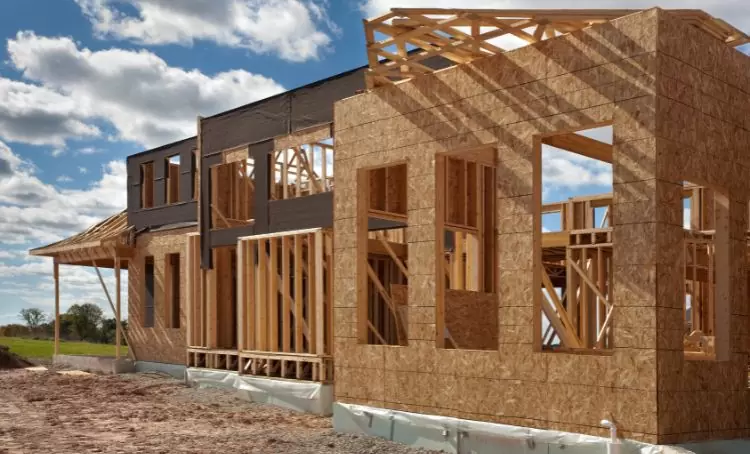Building a new home opens up exciting opportunities for real estate investors and developers. However, the first step in this exhilarating journey is to master the art of financing a new home build. One of the key components in this process is understanding how to leverage a construction loan.
In this article, we’ll guide you through the crucial fundamentals of financing a new home build, providing invaluable insights tailored to real estate investors and developers looking to embark on new construction projects.
What is a construction loan?

A construction loan is a type of short-term financing used to cover the costs of building a home. This type of loan is specifically tailored to the needs of individuals or businesses looking to construct a new property. The key components of a construction loan include providing funds to cover land, labor, and material costs, as well as accessing contingency and interest reserves.
The purpose of a construction loan is to provide the necessary capital during the building phase, and then it can be converted to a permanent mortgage once construction is complete. This allows the borrower to pay off the initial loan and secure long-term financing for their newly constructed property.
The process of converting to a permanent mortgage typically involves an appraisal and underwriting to determine the final loan terms and interest rates. Overall, a construction loan acts as a crucial financial tool for those looking to build a house and cover the various costs associated with the construction process.
How Construction Loans Work

Construction loans, whether long-term or short-term loans, can be an essential tool for individuals or businesses looking to build or renovate a property. These unique loans provide financial assistance specifically for construction projects, offering a different process than traditional home or business loans.
Understanding how construction loans work is crucial for anyone looking to embark on a construction project, as they involve different requirements, disbursement schedules, and considerations compared to other types of loans.
Below, we will delve into the details of how construction loans function, including the application process, funding disbursement, interest payments, and the conversion to a permanent mortgage. Understanding these key aspects will provide a clear picture of how construction loans can benefit those in need of financing for their building or renovation projects.
Construction loans vs. traditional mortgages
Construction loans and traditional mortgages differ in the way funds are distributed, repayment schedules, and the inspection process.
Construction loans disburse funds in stages as the building process progresses, while traditional mortgages provide a lump sum upfront. During construction, construction loans typically have interest-only payments, while traditional mortgages have regular principal and interest payments.
In terms of the inspection process, construction loans involve multiple inspections throughout the building process to ensure that funds are being used appropriately and that the construction is in line with the original plans. Traditional mortgages do not have the same level of inspection involvement.
Overall, construction loans are more tailored to the specific needs of building projects, with funds distributed in stages and interest-only payments during construction, as well as frequent inspections to monitor progress. On the other hand, traditional mortgages provide a lump sum upfront and follow a regular repayment schedule without the same level of inspection involvement.
Construction loan requirements

A construction loan is a specific type of loan used to finance the construction of a new home or building. To qualify for a construction loan, applicants typically need to have good credit, a stable income, and a down payment. Lenders may require a minimum credit score and debt-to-income ratio, as well as a down payment of 20-25% of the total project cost.
In addition to financial requirements, lenders will also require an appraisal of the property and detailed plans for the construction project. The appraisal ensures that the property’s value justifies the loan amount, while detailed plans provide a clear understanding of the project scope and cost. Proof of land ownership is also necessary for the loan approval process.
Working with a reputable construction company and architect is crucial for developing detailed plans and a realistic construction schedule. A reliable construction company can provide accurate cost estimates and timelines, while an experienced architect can create plans that meet building codes and regulations.
Overall, meeting the requirements for a construction loan and working with experienced professionals are essential for a successful construction project.
What does a construction loan cover?

A construction loan typically covers a variety of costs and expenses associated with building a new structure. This can include the purchase of the land, permits and fees, labor and materials, as well as contingency reserves for unforeseen expenses. The loan is designed to cover the progress of the construction project, from the initial land purchase to the completion of the building.
The lender disburses the funds in installments, known as “draws,” as the construction progresses. This ensures that the money is used for its intended purpose and that the project stays on track. Once the construction is complete, the construction loan can be converted to a permanent mortgage or paid off in full.
The conversion to a permanent mortgage allows the borrower to seamlessly transition from the construction phase to the long-term financing of the property. Alternatively, the borrower can choose to pay off the construction loan in full if they have the means to do so. This decision will depend on the borrower’s financial situation and long-term plans for the property.
What Closing Costs are Associated with a Construction Loan?

Closing costs associated with a construction loan typically include appraisal fees, title insurance, and loan origination fees. Appraisal fees are calculated based on the value of the property and can range from $300 to $1,000. Title insurance costs are based on the loan amount and property value, ranging from 0.5% to 1% of the total cost. Loan origination fees are generally 1% to 2% of the total loan amount.
Additional closing costs that may be applicable include inspection fees and construction loan administration fees. Inspection fees can range from $300 to $500 and are based on the number of inspections required during the construction process. Construction loan administration fees are typically a percentage of the total loan amount, ranging from 1% to 3%.
Overall, the total closing costs for a construction loan can vary based on the total price of the construction project, typically ranging from 2% to 5% of the total project cost.
Is it Possible to Get a Construction Loan with no Money Down?

Yes, it is possible to get a construction loan with no money down through USDA and VA loan programs. To be eligible for a USDA construction loan, applicants must meet income and location requirements, and the property must be in a designated rural area. The application process includes providing income and credit documentation, selecting a lender approved by the USDA, and obtaining a construction contract or plans.
For VA construction loans, applicants must be active-duty military, veterans, or surviving spouses, and the property must meet VA appraisal and construction standards. The application process includes obtaining a Certificate of Eligibility, providing income and credit documentation, and selecting a VA-approved lender.
USDA loans require upfront and annual guarantee fees, while VA loans require a one-time funding fee. Both of these fees can be financed into the loan amount. Traditional construction loans typically require a down payment, but specialized programs, such as those linking FHA-insured permanent loans with short-term construction loans, offer low or no down payment options for eligible borrowers.
Key Considerations When Financing a New build

There are a few key questions you need to ask yourself to understand your financing requirements.
Lot vs. Land
Are you buying a lot or raw land? Although the difference might seem small, a lot is often easier to finance, as banks generally feel more comfortable financing this type of undeveloped property rather than a larger tract of land. Check with your bank to see if there is an acreage threshold that separates a lot from land, as this can affect the terms of your loan. Raw land is often more difficult to finance than a lot in an established subdivision.
Preparing A Down Payment
A large down payment is required in order to finance undeveloped property. This is the case because the amount of the loan is calculated by using a Loan-to-Value, or LTV, ratio. The LTV is found by dividing the loan amount by the value of the property. When you choose to buy a lot or land, the LTV is lower than a home that has already been built. A lower LTV must be made up for with a bigger down payment. Try to save up as big of a down payment as possible, as sizable down payments are very helpful in financing undeveloped land. Most lenders like to see a minimum down payment of 20 percent, with some lenders preferring to see a down payment of up to 50 percent.
Length of Loan
Most lot and land loans need to be paid off very quickly, typically no longer than two years. Some loans must be paid off within just a few months. Although most borrowers tend to think of loans in terms of 30 years, this is not the case with financing raw land. When borrowing money to purchase land, be absolutely sure that you’ll be able to pay off the loan within the specified time frame. If you fail to make the payments, you’ll be forced to refinance or pay off the loan in full.
Interest Rates
Lot and land loans often have higher interest rates than other types of loans. However, your lender may allow you to make interest-only payments.
Land and lot loans are quite different from the average mortgage loan. When you’re ready to apply for this type of loan, keep in mind that they require a large down payment, often have higher interest rates, and you must be prepared to pay off the loan in a short period of time.
Apply for a construction loan today

Express Capital Financing offers tailored ground-up construction loans that provide maximum flexibility and transparency, ensuring a smooth and successful building process.
Apply for a ground-up construction loan today through Express Capital Financing to take the first step towards your construction goals.






